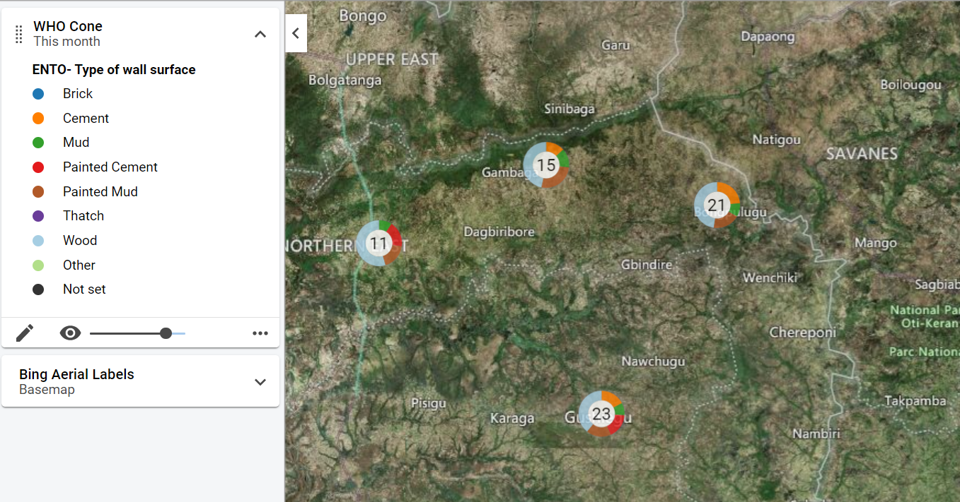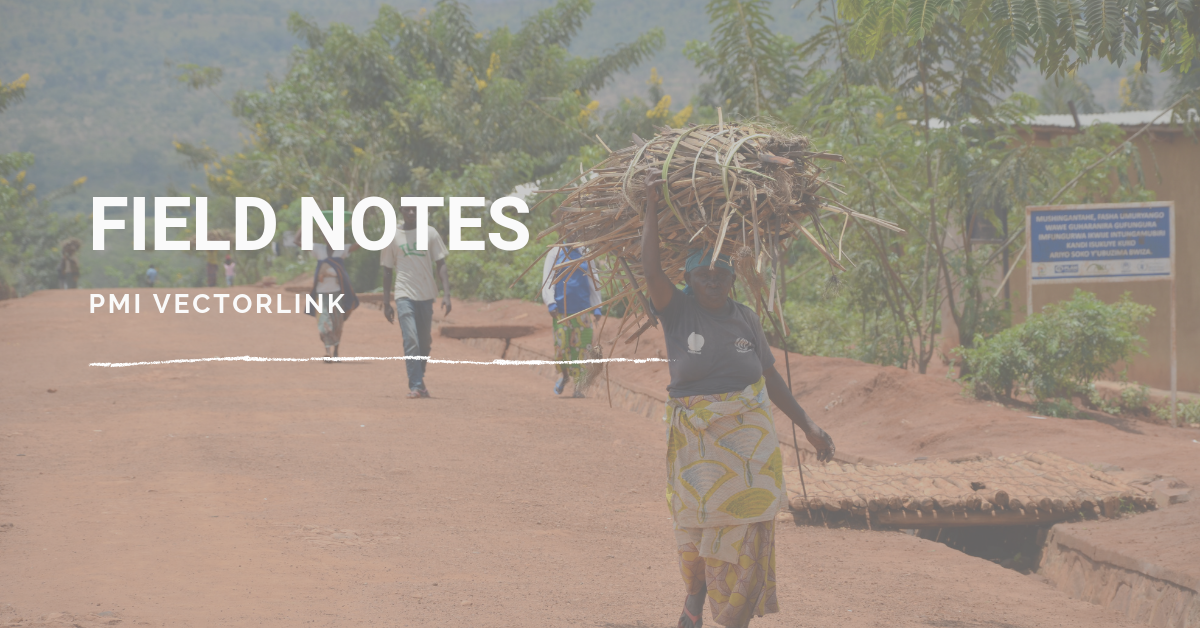Let’s give a Fis t Bump to VL Ghana for their willingness and success in pilot testing a digital entomology data collection tool. Entomological data is critical: we need it to understand the vector, to measure susceptibility to insecticides used in vector control, and to measure the quality and impact of interventions. Results from data collected during entomological field surveillance inform key malaria control decisions. Last year, PMI VectorLink successfully rolled out and implemented five new entomology programs within our global VectorLink Collect database in 17 countries. This new approach to entomology data management supports comprehensive data entry, data management, and analytics for longitudinal vector bionomics, insecticide resistance, and residual efficacy data.
t Bump to VL Ghana for their willingness and success in pilot testing a digital entomology data collection tool. Entomological data is critical: we need it to understand the vector, to measure susceptibility to insecticides used in vector control, and to measure the quality and impact of interventions. Results from data collected during entomological field surveillance inform key malaria control decisions. Last year, PMI VectorLink successfully rolled out and implemented five new entomology programs within our global VectorLink Collect database in 17 countries. This new approach to entomology data management supports comprehensive data entry, data management, and analytics for longitudinal vector bionomics, insecticide resistance, and residual efficacy data.
Across VectorLink countries, entomological data collection has mainly been paper-based with the entomology teams conducting tests, collecting, identifying, and dissecting mosquitoes, and recording findings using paper forms. As a project, we are rapidly expanding our use of mobile data collection, which offers improvements in timely and efficient data capture, enhanced data quality controls at the point of data collection, and more efficient data cleaning processes. With PMI support, we are expanding our efforts to explore mobile data collection for entomology. In late 2020, the project completed a comprehensive landscaping of mobile data collection options compatible with the VectorLink Collect entomology programs. Earlier this year, working in collaboration with VL Ghana, the VL headquarters M&E team began to configure and test entomology programs for mobile using the DHIS2 Android Capture Application. Following several weeks of testing and planning, the VectorLink Ghana team recently launched an entomology mobile data collection pilot for selected entomology programs in 9 sites!
This exciting pilot is being carried out in three phases, using both mobile phones and tablets.
- Phase One involves testing mobile data collection for WHO cone bioassaysand non-hourly mosquito collection, identification and dissection (CID) data. Cone bioassays are used to test for spray quality and residual life of the insecticide, while the CID data is used to identify vector species and their resting and feeding behaviors.
- Phase Twoof the pilot will use mobile data collection tools to monitor and record insecticide resistance test results; and
- Phase Threewill support data from hourly human landing catch
At the end of June, VL Ghana successfully completed Phase One. The Ghana team trained 23 people including 16 field technicians and 7 laboratory assistants to use the mobile application. The field teams then spent eight days in the field capturing data on two types of devices – mobile phones and tablets – to understand the DHIS2 Android Capture Application performance and to give us insights into the user-experience for our team. The VL Ghana team reported that both device types proved to work well. The team conducted cone bioassay tests on different wall surfaces like cement, mud, and wood, and recorded the data using the mobile tool. A total of 688 events (544 CID events and 144 cone bioassay events) were captured in the VectorLink Collect server by the end of the Phase 1 collection period.
The VL Ghana team will continue to support this very important pilot in the coming months, with Phases 2 and 3. The overall results from this pilot will inform the project’s approach towards expanding the use of mobile technology for entomology going forward and has the potential to serve as an example for other partners or institutions collecting entomological data.
Big congratulations to the VL Ghana team, and the headquarters M&E and Entomology teams, for getting this important pilot off to such a strong start!


